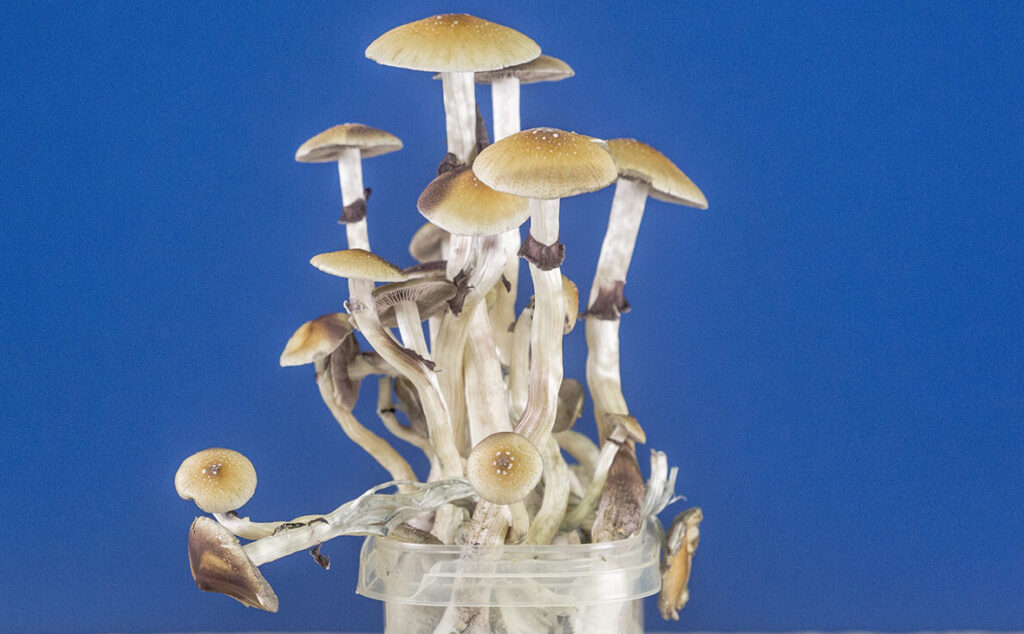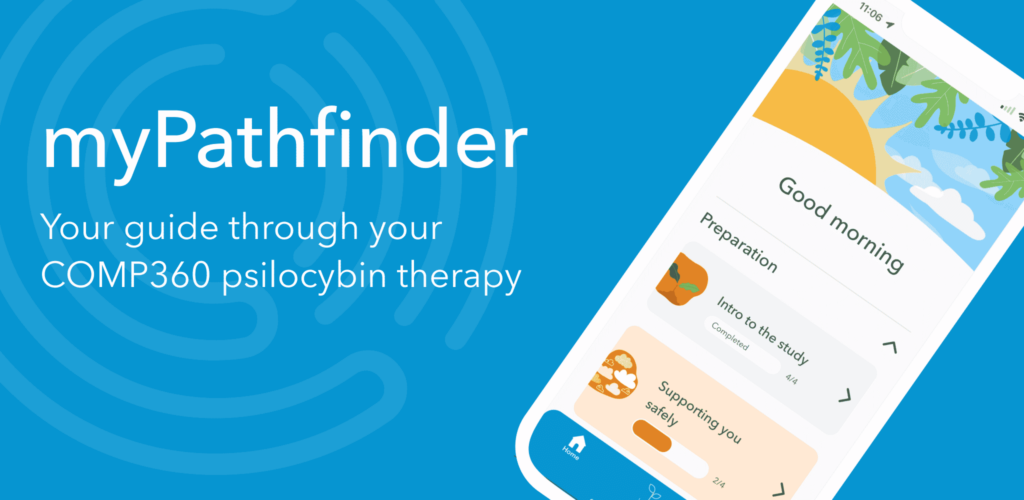This month COMPASS Pathways has launched a phase II clinical trial for the treatment of anorexia nervosa. Their weapon of choice? A special synthetic blend of the active compound in magic mushrooms and truffles, called COMP360 psilocybin.
Let’s take a peek at this new milestone in the making, shall we?
New Psilocybin Trial for Anorexia
The upcoming trial is hosted by four hotspots for psychedelic research. Specifically King’s College London, Columbia University, University of California San Diego, and Sheppard Pratt. The aim is to study the efficacy of COMP360 psilocybin (along with talk therapy) in treating people with anorexia nervosa.
This “multi-centre, double-blind, randomised controlled” trial is COMPASS Pathways’ next major effort after their advanced psilocybin trial for depression.

What makes the new trial so important, however, is the fact that there is currently no approved pharmacological treatment option for anorexia. It’s hard to believe. Will psilocybin-based medicine become the long awaited reliable treatment method?
Dr. Guy Goodwin, Chief Medical Officer for COMPASS Pathways, said in a press release:
“There are no approved pharmacological treatment options for people living with anorexia nervosa, and we are determined to change this.
“We are conducting this rigorous clinical trial to understand whether COMP360 psilocybin, with psychological support, could help people living with anorexia nervosa who urgently need new options.”
COMP360 Psilocybin Therapy
The upcoming psilocybin trial for anorexia will be the first to use a custom application called myPathfinder. The digital app, designed by COMPASS, will help guide participants as they go through their COMP360 psilocybin therapy. MyPathfinder will make the entire process easier to understand by gathering the patients’ real-world data — with their consent, of course. As such, patients have the option to opt in or out of the app.

How will the study work exactly?
First, scientists from the four research centres in the UK and the US will select 60 participants who meet the criteria for anorexia nervosa. The patients will then be told about the overall process, which compares the effects of 25 mg and 1 mg of COMP360 psilocybin when given alongside talk therapy.
Afterwards, if the patients show any changes in their symptoms of anorexia. These will be measured using a test called the Eating Disorder Examination (EDE) interview. The desired goal? For psilocybin therapy to trigger a change in the EDE global score as soon as four weeks.
No Stone Left Unturned
For participants to be included, they must meet the criteria for either the restrictive (“no-eat”) or binge-purge (“eat-then-vomit”) subtypes of anorexia nervosa (mild to severe). Patients must also have at least three years of disordered eating and have tried treatment during the past three years, as well.

Participants will be grouped randomly in a 2:1 ratio. This means that forty people will receive one 25 mg dose of psilocybin, while the remaining twenty will receive the 1 mg dose. All patients will be monitored regularly for 12 weeks — with changes in anorexia symptoms expected at around week 4.
During the 12-week period, researchers will be measuring any changes in the patients’ psychological symptoms using set interviews and self-reported questionnaires. Changes in physical symptoms will be done by measuring their weight. Safety checks will also be performed to watch over tell-tale signs of suicidal ideation.
The Truth About Anorexia
Anorexia nervosa is a devastating condition, which for a while was underestimated by the media.
It is a serious mental illness that severely restricts your calorie intake. Most of us have our own insecurities with weight and shape, of course. However, anorexia nervosa takes it one step further as a life ruining obsession.
As evidence of its severity, anorexia currently has no approved pharmacological treatments. (Just for comparison: even major depression has SSRIs as a treatment option!) Anorexia also has the highest mortality rate of all psychological disorders, due to both physical and mental factors.
Around the globe, roughly 2.2% of women and 0.3% of men struggle with anorexia nervosa at least once in their lives. When a person has prolonged symptoms of anorexia, they start to develop a host of serious physical problems, such as:
- Complications with the muscle and bone, such as osteoporosis;
- Brain damage, which leads to memory loss and seizures; and
- Heart issues, often causing heart failure.
The patient’s mental state also worsens at the same time. This increases the likelihood of suicide — the direct cause of 20-40% of deaths in anorexia nervosa.
Psilocybin For Treating Anorexia
Dr. Walter Kaye, the trial’s lead researcher and Professor of Psychiatry at the University of California School of Medicine – Department of Psychiatry, Eating Disorders Program, said in a press release:
“Anorexia nervosa is one of the most difficult to treat conditions we face in psychiatry, with the highest suicide rate of any mental health challenge. Not only can it have a huge impact on the people living with it, but also on the people closest to them.

“Research and progress are urgently needed; we’ve already seen encouraging data from an exploratory, open-label study in treating anorexia nervosa with COMP360 psilocybin therapy, and this phase II study represents another important step forward.”
COMPASS Pathways’ recent stock boom has more than doubled since May. Clearly, the world of investors is paying close attention. That means one thing: the speedy launch of clinical trials for developing psilocybin-based medicine, which is bound to enter the mainstream sooner rather than later.
Hope for Patients With Anorexia
The initial study mentioned by Dr. Kaye was published last May and showed promising results in using psilocybin to treat anorexia nervosa. However, open-label studies can hardly be classified as “definitive proof” for making psilocybin-based medicine — at least in the eyes of the law and investors. Hence the current plan for a proper clinical trial overseen by experts from four centres in the US and the UK.
So! Can psilocybin, the active compound in magic mushrooms and truffles, finally give those suffering from anorexia nervosa an effective ally in their recovery? The evidence is looking solid, so watch this space.
Fingers crossed, indeed!





